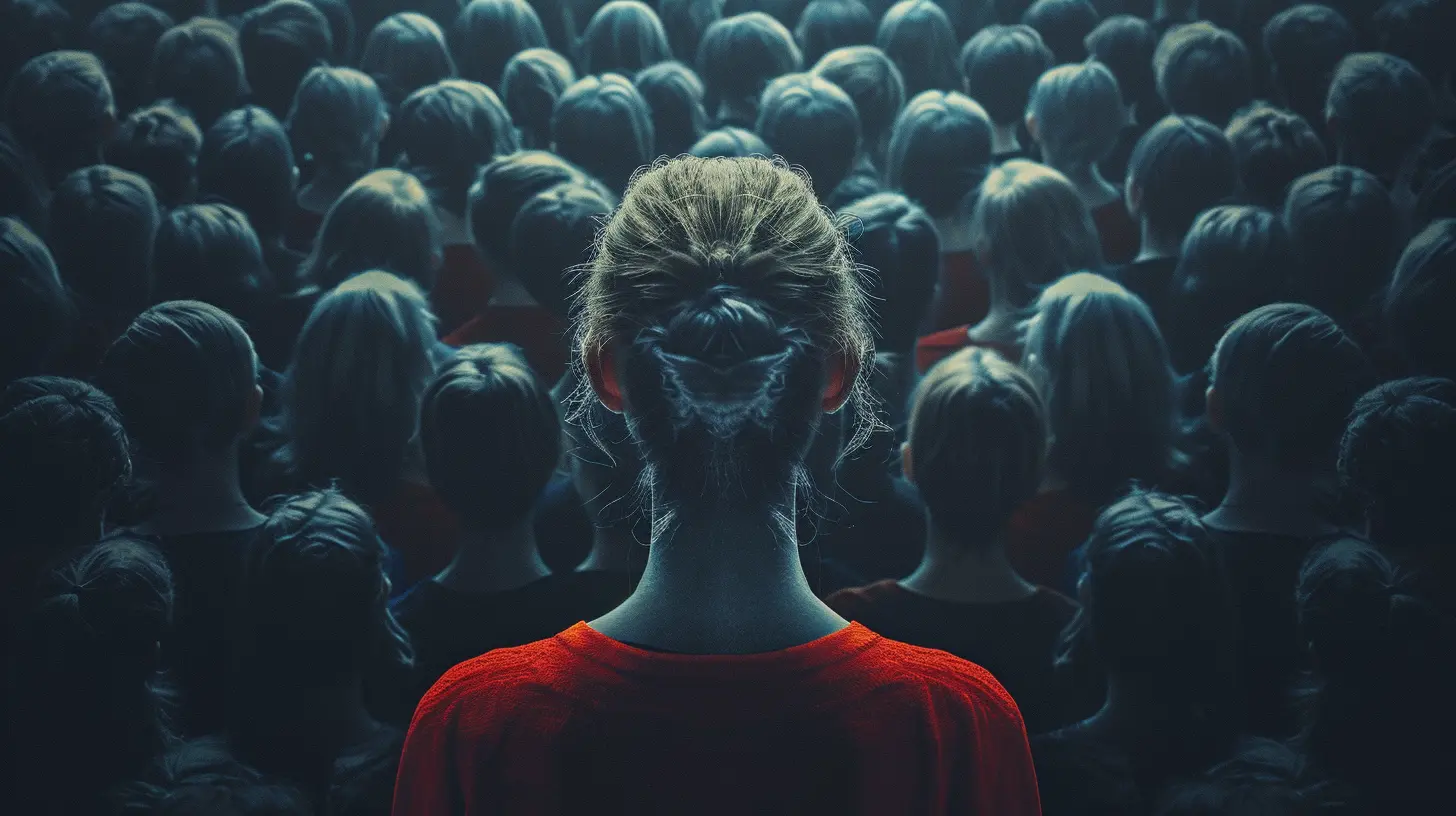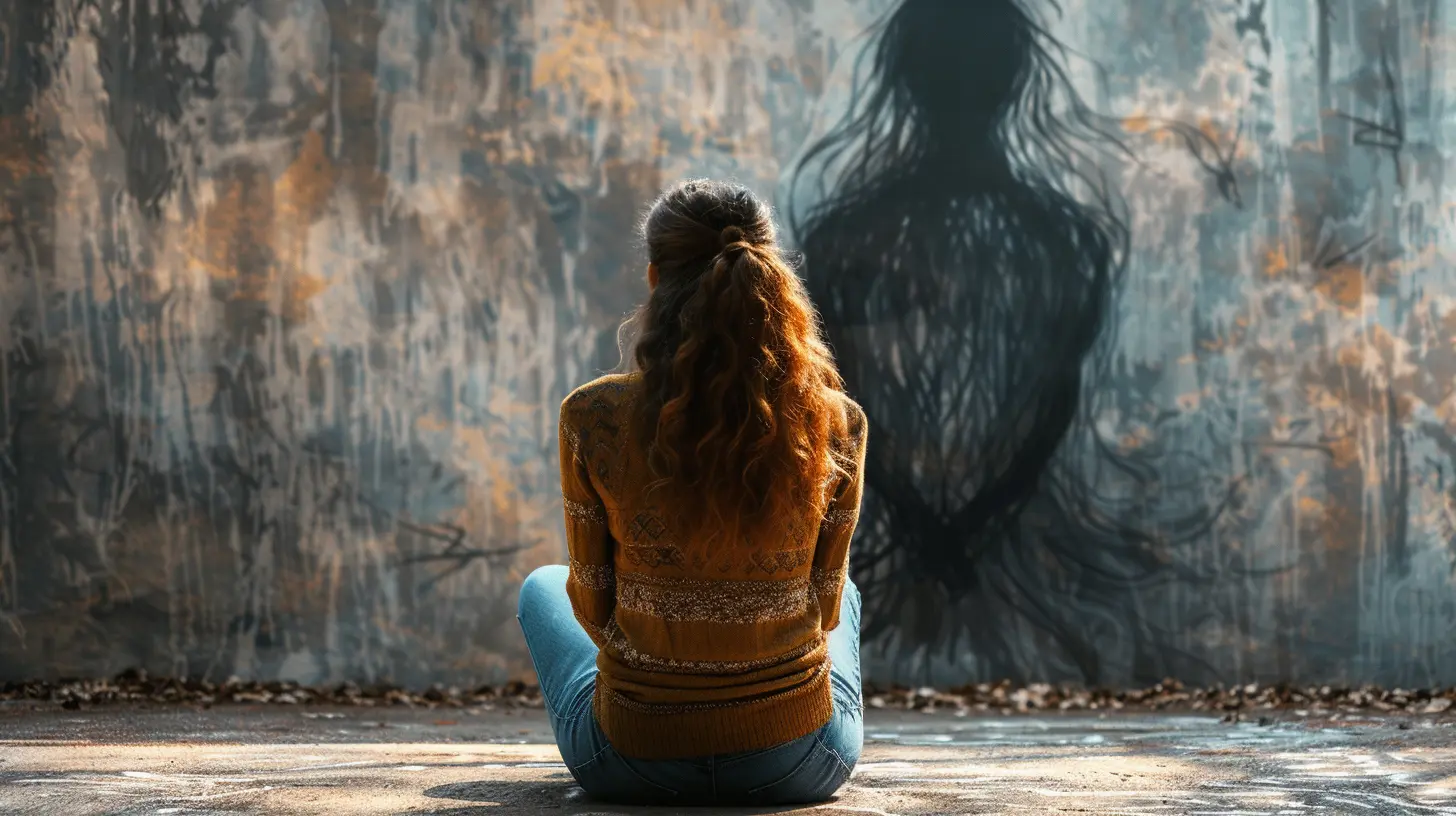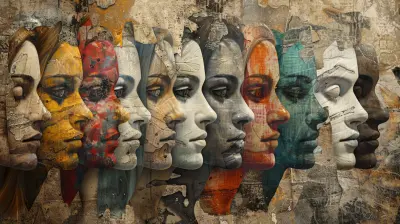The Influence of Cultural Expectations on Social Anxiety
6 June 2025
Let’s be real—social anxiety doesn’t play fair. It creeps in when you least expect it and makes even the simplest social interactions feel like walking a tightrope. But have you ever stopped to wonder why some people feel more anxious in social settings than others? Sure, personality has something to do with it. But a big, often overlooked factor is culture. Yep, the society and community you’re born into can either fan the flames of social anxiety or help put them out.
So, let’s dive deep into how cultural expectations shape the way we experience social anxiety. Buckle up, grab your coffee (or tea), and let’s unpack this complex, fascinating topic together.
What Is Social Anxiety, Really?
Before we get into the cultural side of things, let’s make sure we’re all on the same page. Social anxiety isn’t just being shy or introverted. It’s a persistent fear of being judged, embarrassed, or rejected in social situations. For someone with social anxiety, stuff like small talk, public speaking, or even making eye contact can feel like a high-stakes performance under a spotlight.It’s not just in your head either. Your heart races, you sweat, your voice might shake—it’s a full-body experience. If you’ve ever felt this way, you know it’s no joke.
The Cultural Lens: Why It Matters
Culture is kind of like the background music in your life—it shapes your feelings, thoughts, and behaviors even when you don’t notice it. It sets the tone for what’s considered “normal,” “appropriate,” or “successful.” And when it comes to social expectations, culture pulls the strings in a big way.Depending on where you grow up or what community you’re part of, the rules of social conduct can be very different—and they have a huge impact on whether you feel confident or anxious in social settings.
Collectivist vs. Individualist Cultures
Let’s break this down.In collectivist cultures (think Japan, China, South Korea, much of Latin America), the group comes first. There’s a heavy emphasis on harmony, conformity, and not rocking the boat. People are expected to align their actions with the group's needs and values.
On the flip side, individualist cultures (like the U.S., Canada, Australia, and parts of Western Europe) put the spotlight on the individual. Being unique, standing out, and asserting yourself are usually seen as strengths.
Here’s where it gets interesting: Social anxiety can look totally different depending on which cultural lens you're viewing it through.
Collectivist Cultures: Fear of Disrupting the Group
In these cultures, there’s huge pressure to fit in and not embarrass the group (or yourself). Social anxiety might stem from the fear of saying or doing something that causes others to lose face. You might be terrified of speaking up in a group because you don’t want to seem disrespectful or draw too much attention.Basically, it’s not just about what people think of you—it’s about how your actions reflect on your whole family, team, or community.
Individualist Cultures: Fear of Personal Failure
Now, in individualist cultures, the anxiety tends to come from a different place. Here, there’s pressure to perform, to stand out, to be "on" all the time. If you stumble during a presentation or say something awkward at a party, it feels like a personal failure. You weren’t good enough. You didn’t shine.So while both cultural styles can breed social anxiety, they do it in different ways.
Cultural Stereotypes and Double Standards
Let’s talk about another factor that ramps up social anxiety—stereotypes and double standards.Think about this: In some cultures, gender roles are strict. Women might be expected to be passive and agreeable, while men are pushed to be assertive and dominant. If you don’t fit into these boxes? Social anxiety can skyrocket.
For example, a woman who wants to speak her mind might fear being labeled bossy or aggressive, while a man who’s naturally quiet might worry he’s seen as weak. These gendered expectations aren’t just frustrating—they’re anxiety-inducing.
Racial and ethnic stereotypes add even more pressure. People from marginalized communities often deal with the fear of confirming negative stereotypes, which can amplify social anxiety in academic, professional, and casual settings.
Social Media and Global Culture Clashes
Now let’s throw social media into the mix. Platforms like Instagram, TikTok, and Twitter don’t just connect us—they merge our cultures. And while this can be super cool, it also creates a weird tension.You’re exposed to global standards of beauty, success, and popularity—even if those don’t align with your local cultural values. You start comparing yourself to people with totally different lives, and suddenly you feel like you’re not measuring up anywhere.
Talk about pressure.
This cultural mash-up can leave people feeling lost, especially younger generations who are trying to navigate their identities while balancing traditional family values and modern global norms.
The Role of Family Expectations
Let’s not ignore the family factor here.In many cultures, your family’s expectations carry a lot of weight. Maybe your parents emphasize academic success, social grace, or religious values. You might feel pressure to attend every family event, impress every relative, or never show weakness.
When your personal comfort level doesn’t match up with these expectations, it creates internal conflict. You want to make your family proud, but you also want to stay true to yourself. That tug-of-war? Yeah, it’s a recipe for anxiety.
Religion and Community Norms
Faith and community norms can be another layer of this puzzle. Many religions have specific guidelines for behavior, dress, gender roles, and communication. Following these can give people a sense of purpose and belonging—but they can also cause anxiety if you’re struggling to live up to those expectations.Imagine constantly worrying that you’re being judged by your community. You might fear being labeled "disrespectful" or "a bad example" just because you’re nervous in social settings. That’s social anxiety with an extra pinch of guilt and shame.
How Cultural Sensitivity Can Help
Here’s the thing—understanding the cultural roots of social anxiety opens the door to deeper empathy. Whether you’re someone who struggles with it, or you're supporting someone who does, context matters.Therapists, counselors, and even educators need to consider cultural background when diagnosing and treating social anxiety. A one-size-fits-all approach just doesn’t cut it.
For instance, in collectivist cultures, therapy that emphasizes group harmony and family involvement might work better than one focused solely on individual self-expression. The key is tailoring treatment to fit cultural context—not forcing people into molds that don’t match their worldview.
Tips for Managing Social Anxiety in Diverse Cultural Settings
Okay, so now that we know cultural expectations play a huge role in social anxiety, what can we actually do about it?1. Know Yourself
Start by identifying which cultural norms you’ve internalized. Are they helping you feel confident? Or are they holding you back? Just being aware can be a game-changer.2. Find Your Safe Spaces
Surround yourself with people who understand your experience or who at least respect it. Whether it’s a support group, a close friendship, or an online community, connection is key.3. Set Boundaries
It’s okay to say no to social events or roles that drain you. Honoring your personal needs doesn’t make you selfish—it makes you strong.4. Speak with a Culturally Competent Therapist
Therapy works wonders—but only if your therapist gets where you’re coming from. Look for someone who’s trained in multicultural counseling or who asks the right questions about your background.5. Challenge Internalized Beliefs
A lot of the social anxiety we feel comes from outdated or unrealistic expectations. It’s time to rewrite those scripts. No, you don’t have to be perfect. No, you don’t have to make everyone happy. Yes, it’s okay to be awkward sometimes.Final Thoughts
At the end of the day, social anxiety isn’t just a personal issue—it’s deeply tied to the world we live in. Culture can either cushion us or crush us, depending on the expectations it places on our shoulders.But here’s the good news: You’re not stuck. By understanding the cultural forces at play, you take the first step toward healing. You start to realize that your anxiety doesn’t make you broken—it makes you human.
So, next time you feel that familiar panic in a social setting, pause and reflect. Whose rules are you trying to follow? And do they actually serve you?
Chances are, you’ve got more power than you think.
all images in this post were generated using AI tools
Category:
Social AnxietyAuthor:

Jenna Richardson
Discussion
rate this article
3 comments
Wilder Lawrence
Embracing our unique experiences can transform social anxiety into strength. Remember, it's okay to feel different; your journey contributes to a richer, more understanding world. Keep shining!
June 21, 2025 at 4:37 PM

Jenna Richardson
Thank you for your insightful comment! Embracing our unique experiences indeed fosters resilience and enriches our understanding of social dynamics. Your perspective is vital to this conversation.
Lily Willis
Thank you for shedding light on this important topic. Understanding how cultural expectations shape social anxiety can foster greater empathy and support for those struggling. We must continue to promote awareness and acceptance.
June 7, 2025 at 4:40 PM

Jenna Richardson
Thank you for your thoughtful comment! I completely agree that fostering awareness and empathy is essential in addressing the complexities of social anxiety shaped by cultural expectations.
Alessia Porter
Social anxiety: the awkward dance where cultural expectations are the DJ, spinning tunes that make us trip over our own feet! Let’s embrace the chaos and wiggle our way into comfort, one quirky step at a time!
June 6, 2025 at 4:15 AM

Jenna Richardson
Thank you for your insightful comment! Embracing our quirks can indeed help us navigate the intricate dance of social interactions influenced by cultural norms.



